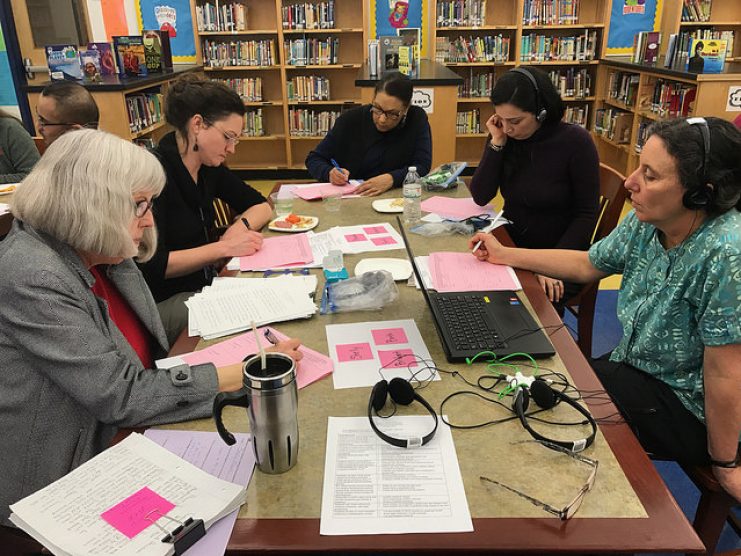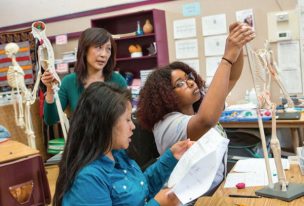
A Principal Learns Alongside Teachers
An essential component to establishing an adult learning culture in schools is the leader modeling a learning stance alongside their staff. At Mills Teacher Scholars partner site Montalvin Elementary in West Contra Costa Unified, principal Katherine Acosta-Verprauskus is doing just that.
Katherine has engaged in collaborative inquiry throughout this school year. As Montalvin teachers use inquiry to systematically deepen their understanding of core instructional routines such as math problem solving or academic discussion, their principal has collected data to better understand how to support K/1 student independence and problem solving in the lunchroom–a pervasive dilemma for elementary school leaders.
“My inquiry has been about supporting students to have self-regulating skills during the unstructured time, which is lunch. The group that I have really been pulling my hair out over is my kinder and first- grade lunch. You can imagine 150 kids who all need their milks open!”
To better understand the lunchroom challenges, Katherine asked Mills Teacher Scholars facilitator Julia Beers for data collection support. Julia stood by Katherine’s side and video recorded her interactions with K-1 students in the lunchroom.
In the monthly Mills Teacher Scholars inquiry sessions, Katherine watched the video with her staff, who supported her to both see what was happening with students and to develop her ideas around her expectations for students in this context.
“As I was thinking about what success would look like for this time in the lunchroom (and looking at my data that showed me I had 125 interventions just by myself), I thought, ‘It’s not clear to these kids what I want this time to look like and sound like. Obviously I haven’t taught it to them in a way that makes sense.’”
As Katherine reflected on this data in the inquiry sessions and shared it with her team, they created norms around behavior and processes in the lunchroom and directly taught the kids how to be successful. By year’s end they had seen significant growth.
“Although it’s not perfect, lunch period for K/1 is just so much more efficient. I’m still running around, but the last time I had a colleague video record me I only had 30 interventions.”
Everyone is a Learner at Montalvin
Katherine recognizes that adult learners, herself included, need the time and space to step back, look at data, and make adjustments to their instruction. She also feels that it is important for her teachers to see her making sense of her own practice in this way.
“I would say that it’s been eye opening to put myself in a position of a learner when I’ve been accustomed to presenting content and facilitating other people’s learning. As a principal, I feel like every single day goes by very fast and I’m doing so many things. I rarely stop and think about one area or problem that I’m having in my practice. Through inquiry, I get to have my staff – whose problems I am usually trying to solve – help me think about an issue over time. It’s been a good opportunity for teachers to see the instructional leader on campus model the type of work that they have been doing, because it is hard work and we are all doing it together.”
Montalvin teacher scholar leader Beth Levine echoes Katherine’s sentiments:
Everyone is a learner at our school, including the principal. Our principal is modeling the inquiry process by choosing an area of focus that she wants to grow in. She is collecting and analyzing data just like we are. I feel so encouraged by observing her process and knowing that there is an area of growth in everyone’s practice. She values the time in our inquiry sessions to discuss and think about her data. Having her be a part of our meetings contributes to our overall growth and focus in the inquiry process.

